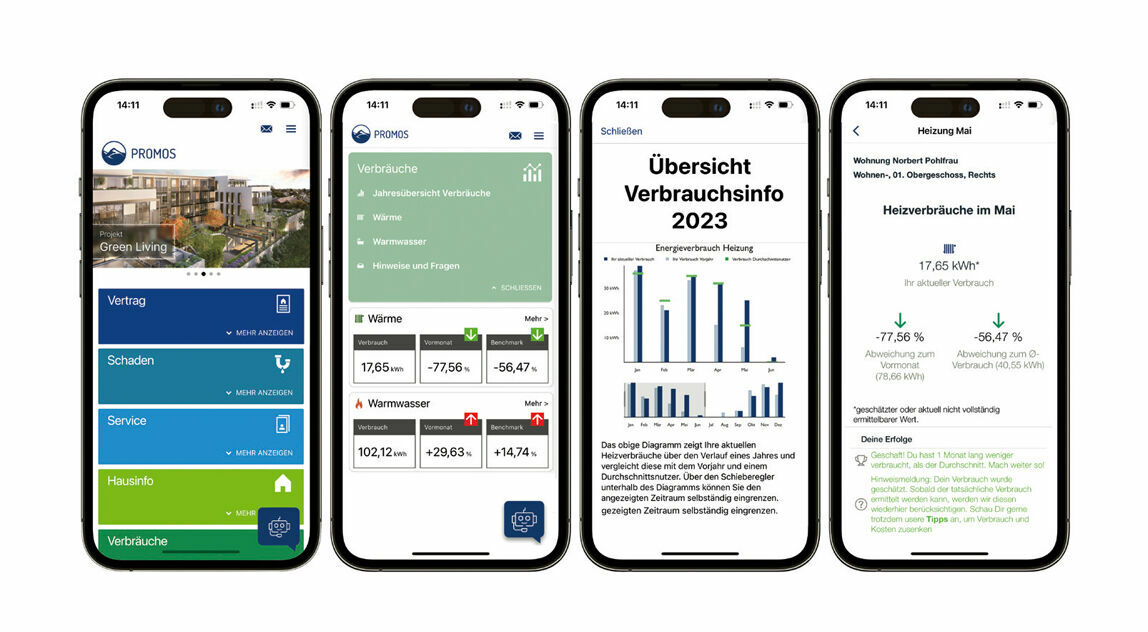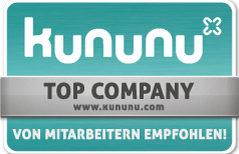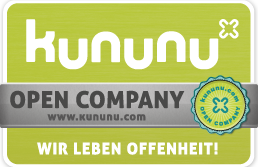Professionalising digital utility cost management

ESG – Environmental, Social and Governance – identifies the three areas of responsibility in companies that should be organised sustainably: environmental, social and corporate governance. The EU has defined various criteria for this and different sectors have developed their own. For the real estate industry, it is important to take climate targets into account in order to achieve sustainability; its focus is on building equipment. The new Building Energy Act (GEG), for example, provides for climate protection measures, but it is not the only legal regulation to take effect. The amendment to the Heating Costs Ordinance (HKVO) from 1 December 2021 transposes the EU Energy Efficiency Directive (EED, Directive 2018/2002) into German law – with new obligations for property owners and managers to reduce energy consumption and with regard to fairer and more transparent billing. They now have to inform tenants and residents about their consumption data throughout the year – as of 1 January 2022.
This means that homes must be equipped with interoperable, radio-readable consumption recording devices for heating and hot water. Until now, the devices could generally only be read and billed by the service provider who installed them. With the installation of the new, interoperable technology, housing companies can now choose their service providers freely; interoperability thus has a liberalising effect on the market. In addition to the current consumption values, the correct presentation of consumption data throughout the year also includes the figure for the previous month, the comparison period of the previous year and benchmark information on the property. The information can be provided to the tenants digitally via app, as an e-mail or by post. This is intended to create added value for them, as it means they are involved in the development of consumption and the resulting development of costs in accordance with the EED and can adjust their consumption behaviour. Consumption analyses, benchmark information and information on the energy mix and CO2 emissions must then be combined in the annual statement of heating costs.
For real estate managers and owners, these requirements mean significantly increased effort, new workflows and processes. For consumption data throughout the year, data must now be received and sent during the year in addition to the annual statement, which requires a continuous exchange of data between housing companies and service partners.
Challenges
Climate protection requirements and the necessary digitalisation are therefore the key challenges facing the real estate sector. This is because the real estate industry, with its energy suppliers, metering services and housing providers, is still in its infancy when it comes to digitalisation; infrastructural and procedural requirements differ, data structures are complex and equipment varies. The connection of service providers in the area of heat metering services, for example, is inconsistent. Although there are standardised formats or web services in line with ARGE for traditional billing, these are interpreted individually. This is why the connection of individual metering service partners requires a great deal of coordination.
In addition, information such as fuel mix or CO2 emissions, which according to HKVO must be shown in the bill, is currently only rarely provided digitally by the energy suppliers. For companies, this means a high data collection effort. Taking into account temporary legal requirements, such as the gas and electricity price brakes of the emergency energy heating aid programme, and the allocation of the CO2 emission costs shown in the fuel costs, further increases the administrative effort, as state subsidies must be shown in the billing. And last but not least, the CO2 emission costs are allocated proportionately to tenants and landlords, for which the properties must be assessed and categorised in terms of energy efficiency.
It is true that utility cost statements have always been an administrative burden for real estate managers and owners, resulting in costs being settled and credit balances or additional payments being passed on to tenants. However, today’s requirements have increased immensely and, as in the case of the EED, the time frames for implementing legal requirements are extremely tight. Billing and the associated commercial processes often still involve manual intervention.
Digital utility cost management
This needs to change. All upcoming tasks – data analysis, property monitoring including categorisation, and structural changes – require digital processes in order to manage the flood of data and reduce costs. The determination of consumption data, its preparation, transmission, processing and provision to the tenant should take place in a continuous, barrier-free process.
The aim of the real estate industry should therefore be to create synergies when collecting technical building data and to merge it with information from metering services and energy suppliers in a data pool. This allows creation of an automated process that includes communication with tenants as well as the connection of partners. The data pool can also be used to gain insights into where we stand and where we need to develop in order to be climate-neutral by 2045.

Figure 1: PROMOS offers housing companies the opportunity to provide their tenants with consumption data throughout the year, digitally and across all devices via an app.
The easiest way to implement this approach is with a platform such as the service partner platform of PROMOS consult Projektmanagement, Organisation und Service GmbH. It is connected upstream of the ERP, integrates all partners such as energy suppliers or billing service providers and allows the use of workflows to create consistent, standardised processes in order to efficiently fulfil requirements with a high degree of automation. This avoids or overcomes system disruptions. From the data pool created, companies can integrate the available data into existing processes in tenant communication, residential property inspection or other administrative processes in the context of portfolio management or legal safety precautions. The connection of the metering service partners can thus be standardised; the data transferred by the partners is checked and converted to a standardised format. This converted data is entered into the ERP system of the housing companies, resulting in a standardised process. As a result, processes are optimised and efficient. The Utilities Cockpit (NKPU) developed by PROMOS enables simple utility cost management.
Opportunities
If the new requirements are implemented professionally, companies not only fulfil their legal obligations, but it is also an opportunity for the real estate industry to drive forward digitalisation and shape processes itself. This enables them to reduce costs and expenses and work more efficiently in order to meet the higher demands with the same team strength.
With data sovereignty, companies can easily take the aspects of ESG into account – steering the company to the same extent, but also allowing tenants to participate. In the past, apportionable utility costs were simply transferred to the tenants, but today, in view of inflation and rising energy prices, awareness has increased. Companies can offer their tenants added value with an app, for example. Transparency is improving and sustainability can be implemented on a broad scale.
If the data is consolidated, companies can also decide whether to bring partners on board or become involved themselves in value chains, such as taking over external metering services for heating or water that would otherwise have to be paid for. In this way, sales potential can be unlocked, as it is becoming increasingly difficult to generate returns in the rental sector itself. The added value remains in the company, investments become possible and fairer prices can be offered to tenants. Liberalisation makes it possible to end dependence on individual service providers and work with those who offer a more suitable service.
Last but not least, investment decisions become more reliable on the basis of the transparent data availability. Real estate owners know the current energy and physical information of the buildings and can better assess whether renovation is required or whether windows and heating systems need to be replaced.
Conclusion
Real estate owners and managers must fulfil ever more stringent requirements when billing utility costs and take the carbon footprint of their buildings into account. That’s why they need data sovereignty and a platform that brings together all the data from different sources. This allows processes to be standardised, made more efficient and new sales potential to be tapped, for example by bringing parts of the added value into the company and preparing billing within the company’s own infrastructure.
Nadja Müller, freelance journalist

